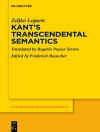The Greatest Works of Thomas More is a compelling anthology that brings together the most profound writings of Thomas More, capturing the essence of Renaissance humanism and political thought. The collection showcases a variety of styles ranging from philosophical treatises to pointed critiques, reflecting the intellectual vigor of More’s time. The anthology’s scope extends beyond mere academic discourse; it invites readers into the moral and ethical considerations that underpin More’s renowned works, such as insights into justice, governance, and the human condition, making the collection indispensable for understanding the essential issues that defined an era of profound transformation. Curated by expert editor William Roper, this collection is enriched by the contributions of Thomas More, who was not only a key figure in the European Renaissance but also an incisive thinker and statesman. Roper’s careful selection of texts illustrates an intricate tapestry of thought that aligns with the period’s broader movements, such as the Reformation and the rise of humanism. Each piece is chosen to highlight these dynamic historical contexts, creating a dialogue that resonates with today’s readers and underscores More’s lasting influence on literature and politics. This anthology is recommended for anyone eager to explore the multiple dimensions of More’s thought and gain insights into the historical contexts that shaped his ideas. Readers will find themselves immersed in a rich interplay of perspectives, deepening their understanding of Renaissance thought while appreciating the enduring relevance of More’s social and ethical critiques. The Greatest Works of Thomas More offers an invaluable opportunity to engage with the transformative ideas that continue to challenge and inspire.
Mengenai Pengarang
William Roper (1496 – 1578) was an English lawyer and biographer, best remembered for his personal connection as the son-in-law of Sir Thomas More and as the author of ‘The Life of Sir Thomas More’ (1626), which remains one of the primary sources for the life of the Tudor statesman, scholar, and saint. Roper’s account is significant as it provides a detailed and intimate portrait of More’s character, professional life, and the difficult moral decisions he faced. His work is often praised for its candor and invaluable historical insights, granting readers access to the private and public struggles of a man who chose to remain true to his conscience, even at the cost of his life. Roper himself, a staunch Roman Catholic, was well-placed to understand and interpret More’s religious convictions, which culminated in More’s execution for his refusal to accept King Henry VIII as the head of the Church of England. While ‘The Greatest Works of Thomas More’, as cited, is not directly authored by William Roper, his contributions to More’s legacy cannot be underestimated, as his biographical work has informed countless scholarly texts and discussions on the Utopian author and political figure. Roper’s literary style exemplifies the humanist intellectual climate of the Renaissance in England and serves as a testament to the intense religious and political complexities of the 16th century.












